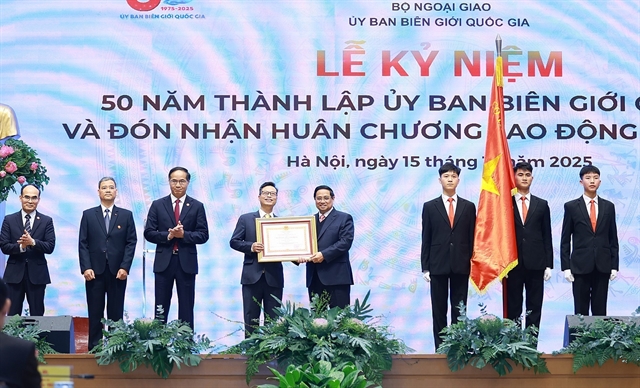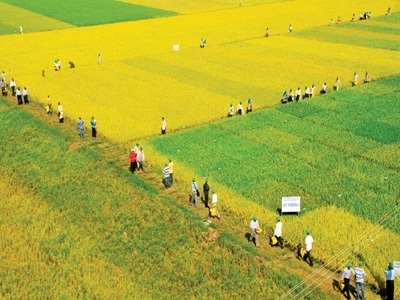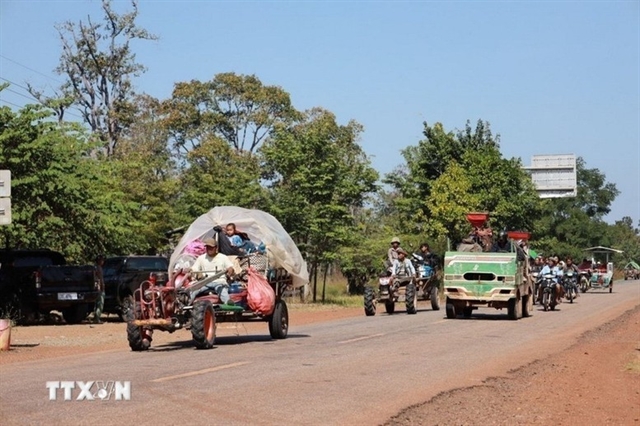 Society
Society

The large-scale farm model, which has achieved great success since being adopted in the Mekong Delta five years ago, could produce even better results with closer co-operation between farmers and enterprises.
 |
| The large-scale farm model, which has achieved great success since being adopted in the Mekong Delta five years ago, could produce even better results with closer co-operation between farmers and enterprises. — Photo ipsard.gov.vn |
AN GIANG — The large-scale farm model, which has achieved great success since being adopted in the Mekong Delta five years ago, could produce even better results with closer co-operation between farmers and enterprises.
The model, which involves farmers pooling lands to achieve economies of scale, works by co-operation between them and businesses with support from the government and crop scientists, but is plagued by inefficient co-operation.
There are often complaints by both farmers and the agricultural businesses that the other has violated the contract: the former complain the businesses come up with new demands when paddy prices fall, while the latter claim farmers sell their produce to other traders when the price increases.
Deputy Minister of Agriculture and Rural Development Trần Thanh Nam says the regular breach of contract indicates that the relationship between the two sides is not very good.
In the near future, when export enterprises need reliable sources of rice and farmers become aware they should be united with businesses amid the country’s integration, they will develop a trusty relationship, he says.
But for that there should be greater intervention by authorities, he says.
Phan Công Bình, director of Công Bình, a company based in Long An Province, says “We face many challenges without support from the local government.”
He says the key to the problem lies in harmonising the benefits of the two sides.
Farmers and enterprises agree that they rarely sue each other even when one side violates the contract, but experts want penalties to be made more stringent.
Costs dropping
Đồng Tháp and An Giang were the first two provinces in the country to adopt the model, which helps farmers cut costs and improve quality.
Hậu Giang Province was where the cost of growing paddy used to be the highest in the delta, at VNĐ4,000-4,200 per kilogramme.
But since the model was adopted, the cost came down to VNĐ2,700, Nguyễn Văn Đồng, director of the provincial agriculture department, says.
Five years after the programme began the delta has the largest area -- 450,000 hectares -- under the large-scale farm model.
Several companies like Gentraco, Lộc Trời Corporation and others have been operating efficiently under the model.
In the last two years alone, banks have lent VNĐ7 trillion (US$318 million) for 21 projects by companies involved in it, with the money used to produce high-quality rice for export. — VNS




